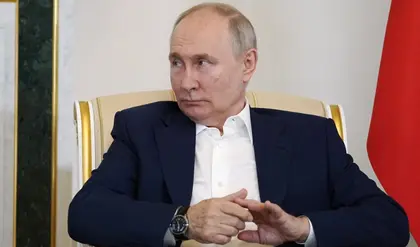President Putin was paralyzed and unable to act decisively on the morning of the Wagner rebellion and no orders were issued at the Kremlin for most of the day, according to a report in the Washington Post.
Speaking to a number of Western and NATO officials, the paper claims the Russian leader was warned about a possible Wagner coup attempt days before it happened on June 24, but squandered the opportunity to quash it before it began.
JOIN US ON TELEGRAM
Follow our coverage of the war on the @Kyivpost_official.
“Putin had time to take the decision to liquidate [the rebellion] and arrest the organizers,” said one of the European security officials, who spoke on the condition of anonymity to discuss sensitive intelligence.
“Then when it began to happen, there was paralysis on all levels. There was absolute dismay and confusion. For a long time, they did not know how to react.”
The report further claims that Wagner chief Yevgeniy Prigozhin had support among high-ranking Russian military and political figures.
“Some supported Prigozhin and the idea that the leadership needs to be cleaned up, that the fish is rotting from the head,” one of the European officials said.
One high-ranking NATO official said that some senior figures in Moscow appeared ready to join Prigozhin should he succeed in having his demands met: “There seem to have been important people in the power structures… who seem to have even been sort of waiting for this, as if his attempt had been more successful, they would also” have joined the plot, this official said.

Putin and Xi Praise Ties, Hours After Trump Sworn In
When asked about the claims, Kremlin spokesman Dmytry Peskov told the newspaper that the intelligence estimates are “nonsense” and are being circulated by “people who have zero information.”
The coup attempt was called off after an intervention by Belarus leader Alexander Lukashenko who now hosts Prigozhin and some of his fighters in his country.
In line with the resulting agreement, Wagner PMC troops were ordered to return to their field camps, and all charges against Prigozhin were dropped, facilitating his relocation to Belarus.
Putin has since taken several steps to increase his security in Moscow. Russian lawmakers passed a bill on Wednesday, July 19, that would allow its National Guard to deploy heavy weapons – including tanks – on the streets of the country.
Since it was formed in 2016 its original role as a means of controlling and stopping public demonstrations has since taken on a broader role including participation in Moscow’s full-scale war on Ukraine launched in February last year.
According to the legislation passed by the Russian parliament’s lower house, the force, which answers directly to Putin, will be able to be armed with military-grade weapons, including heavy weapons.
You can also highlight the text and press Ctrl + Enter










